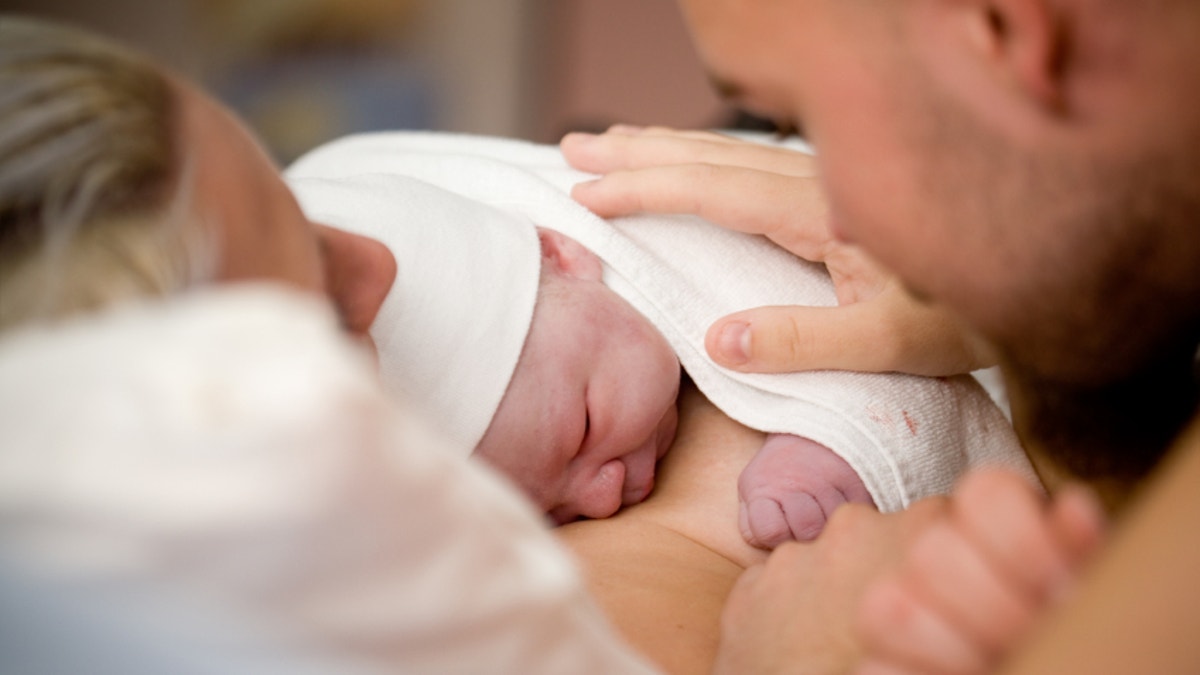
Newborn baby girl right after delivery, shallow focus
Scientists have linked the dearth of four types of gut bacteria to asthma, the respiratory disease that has risen explosively in the past 50 years and now afflicts up to a fifth of children in Western countries.
The researchers discovered that low levels of the bacteria in newborns put them at an increased risk of getting asthma later in life. Infants usually acquire bacteria naturally and are protected. But the increased prevalence of certain events—the use of antibiotics by pregnant women, delivery by caesarean section, urban living and formula feeding—may make it harder for newborns to acquire the needed bacteria, scientists say.
The finding, published Wednesday in the journal Science Translational Medicine, is significant because it could be used to develop a simple, stool-based diagnostic test to predict asthma risk in infants. More ambitiously, it could also guide the development of probiotic treatments to prevent the disease.
Stuart Turvey, pediatric immunologist at the University of British Columbia and co-author of the study, said that while previous research has linked gut microbes to asthma, “our advance was to put a name to some of the bacteria and to emphasize the 100-day window” after birth when newborns crucially need to be exposed to them.
About 300 million people world-wide suffer from asthma, including about 26 million in the U.S. The percentage of the U.S. population with the disease increased from 3.1 percent in 1980 to 8.4 percent in 2010, according to the U.S. Centers for Disease Control and Prevention.
Asthma has a genetic component. But science is also making headway in identifying the environmental factors, such as missing microbes, that contribute to the disease. For example, in an elective C-section—a procedure widely practiced in many countries—a newborn misses the initial chance to acquire the mother’s bacteria during labor. Similarly, breast milk may contain favorable microbes that an infant misses when fed formula. Some pregnant women are given antibiotics, which can kill off the beneficial bacteria a newborn might need.
According to one estimate, these modern practices have resulted in the human body losing up to 50 percent of its original microbial diversity.
